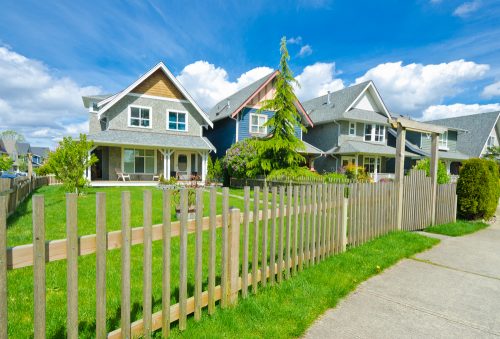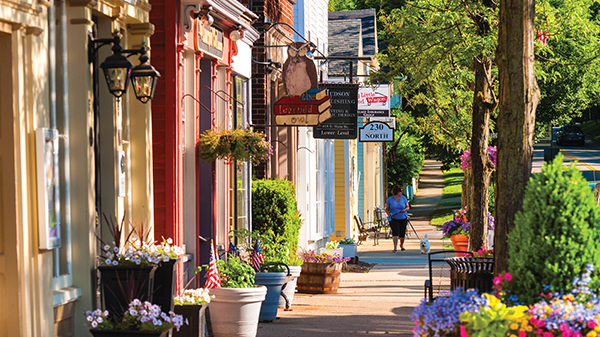This article was originally featured in March 2018 Think Realty Magazine and written by Michael Miller, Chief Marketing Officer of 5 Arch Funding.
Are you an investor seeking fresh opportunities? If you haven’t yet considered fix-and-flip or rental property investments in small towns, now may be the time.
Of course, any property—small town or big city—presents a mix of risks, drawbacks, and rewards. Some small towns appear to be solid investments, with good employment rates, strong economic stability, and better livability ratings. But plenty of big cities offer similar advantages, so it’s important to evaluate the region and the property itself with a critical eye.
Is small town investing for you? There are a number of benefits waiting there you may not find in bigger cities. Here are three of the biggest:
1. Lower Barriers to Entry & Increased Diversification
You can invest in a small town with a much lower cost of entry. This means seasoned investors can make money in small towns without tying up working capital. In fact, you may be able to invest in three to five smaller properties in a small town for the price of one urban luxury property.
For instance, in cities with populations above 800,000, a recent Kiplinger’s survey found median home values to average $587,090. Meanwhile, the 10 most affordable small towns, according to Realtor.com, had homes available at median prices below $99,000.
In addition to lower home prices, these small towns also shared other desirable characteristics, including unemployment rates less than four percent and below-average crime rates.
Small towns are not just nice places to live for the residents, but a perfect way for investors to diversify risk and income streams, creating a healthier investment portfolio. After all, if a lot of your cash is tied up in other projects, there’s no reason to stop doing good deals at lower price points. Who wouldn’t want to make a nice bit of profit with very little cash outlay?
2. Less Competition
While seasoned investors clamor for the hottest properties in New York, Los Angeles, and Miami, you can quietly create a solid real estate investment income in small towns.
Real estate prices are so much lower in small towns in part because there is less competition among buyers. We all know that greater demand can drive up property prices. A smaller population means fewer investors. With fewer investors in the area, you’re less likely to miss out on purchasing a choice property, especially if you are considering a bank-owned or auctioned property, where more bidders can drive up prices.
The numbers work in your favor when you invest in a town with a population fewer than 10,000. For example, when the time comes to rent a single-family home or multi-dwelling unit, tenants have fewer choices. You may not have to spend as much on rehab upgrades or incentives to entice renters to choose your property over a competitor’s.
 3. Easier Rehabs and Property Management
3. Easier Rehabs and Property Management
If your investment property needs renovations prior to renting or flipping, it’s often easier to accomplish the task in a small town. Small towns tend to have fewer zoning restrictions, which means less paperwork and red tape before beginning a rehab project.
Furthermore, the cost of living is lower, which means labor and materials cost less. If you’re a big-city investor accustomed to dealing with unions and high hourly labor rates, you’ll be pleasantly surprised by how much further your money goes in a small town.
Because the labor pool is smaller, it may not be as easy to find reliable, qualified contractors. However, there are also fewer people looking for their services. Just as you would in a city, it’s important to build relationships with skilled contractors in the area – and then keep them busy.
Likewise, if you need a property manager or someone to maintain the property, their salary will cost less in a small town. As a long-distance landlord, you’ll also enjoy the peace of mind of knowing your property is situated in a low-crime area where neighbors look out for each other.
Next Steps: Finding Your First (or Next) Small Town Investment
Small town living isn’t for everyone, but the benefits make it worthwhile for investors to consider – even if you don’t personally decide to settle down in the town.
Before you purchase property, look at the town’s vacancy rates, real estate price trends, and economic and population growth. The markers of a good investment are the same in rural areas or big cities. Low (or falling) unemployment rates and an influx of millennials could indicate a good investment for landlords and fix-and-flip investors, alike.
We like to call it the “hipster” effect. It’s the same type of culture movement that has transformed industrial urban markets like Williamsburg, NY, and continues to lead new small towns.
Always have an exit plan in place, as economic changes to a small town can be devastating. As long as you keep in mind the basics of smart investing, you can increase your profits with a diversified portfolio that includes small town properties.
Michael Miller serves as the Chief Marketing Officer of 5 Arch Funding and its parent company, 5 Arches, LLC. Learn more at 5Archfunding.com.


 3. Easier Rehabs and Property Management
3. Easier Rehabs and Property Management



















0 Comments